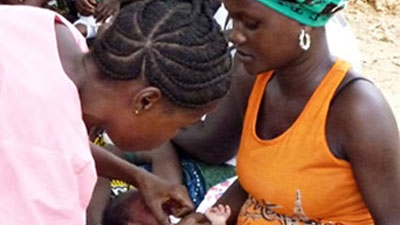In a clinic in Moyamba district in southern Sierra Leone, mothers stand in line with their infants to receive free immunizations provided by the government. This is a hopeful picture for a country that is one of the least safe places in the world for a woman to give birth, with one out of every seven women dying during pregnancy or childbirth. But as each mother gets to the front of the line, the nurse demands six cups of rice before administering the immunization. The mothers comply.
Across the border in neighboring Liberia, the communities of Bomi Hills suffer from delivery failures in other ways. Residents of what was formerly known as "Bomi Holes," due to longtime iron ore extraction, have been told by officials to cooperate with international investors in mining and agriculture, for the good of the country. Despite this investment, these communities suffer markedly low development indicators and an increase in food insecurity and displacement. Without credible government institutions to monitor investor compliance and hear and resolve grievances, community tensions have spilled over into repeated instances of unrest.
These stories are echoed in many parts of the world. Too little attention is given to how services should be delivered to benefit those most in need, resulting in the “what” — or the basic services — failing to reach or benefit those individuals. The “science of delivery” emphasizes the question of how to deliver services, focusing on problem solving to design context-specific solutions and to address and identify capacity gaps as well as points of intervention.


